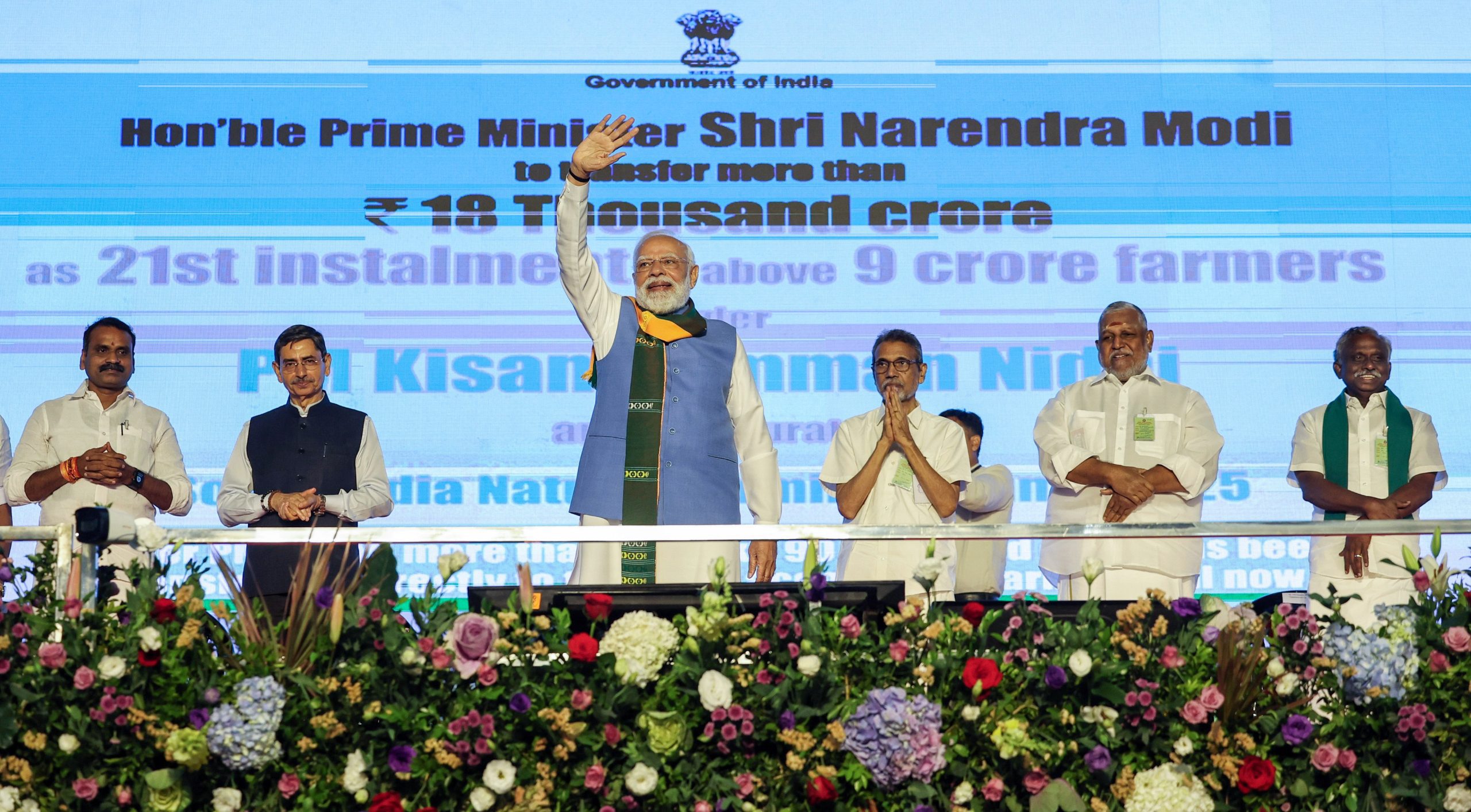Prime Minister Narendra Modi inaugurated the South India Natural Farming Summit 2025 in Coimbatore, Tamil Nadu, on Wednesday. Beginning his address by offering salutations to Lord Murugan of Marudhamalai, the Prime Minister described Coimbatore as a land of culture, compassion and creativity, and recognised the city as a major centre of South India’s entrepreneurial strength and textile economy.
Expressing that natural farming is a subject close to his heart, the Prime Minister extended his best wishes to farmers of Tamil Nadu and participants of the summit, which includes agricultural scientists, startups, industry partners and innovators. He said that India is on course to become a global hub for natural farming and noted that the shift towards sustainable agriculture will further strengthen the rural economy.
The Prime Minister stated that India’s agricultural exports have nearly doubled in the last eleven years and added that every possible avenue is being opened to modernise farming. He highlighted that farmers have received assistance of more than ₹10 lakh crore under the Kisan Credit Card (KCC) scheme this year and the extension of KCC benefits to livestock and fisheries has helped people engaged in those sectors.
From the same platform, the 21st instalment of PM-Kisan Samman Nidhi was released, transferring ₹18,000 crore to farmers across the country. Modi said that under the scheme, ₹4 lakh crore has so far been directly transferred to bank accounts of small farmers to meet agricultural needs.
The Prime Minister said that the rapid increase in the use of chemical fertilizers and pesticides has affected soil fertility and moisture levels while increasing the cost of cultivation. He underlined that crop diversification and natural farming are necessary to revive soil health and protect biodiversity for future generations.
Referring to the National Mission on Natural Farming launched last year, Modi said lakhs of farmers have already adopted natural farming and the results are clearly visible across South India. He added that around 35,000 hectares in Tamil Nadu are under organic and natural farming.
The Prime Minister pointed out that natural farming is an indigenous Indian practice rooted in tradition and aligned with the environment. He welcomed the increasing adoption of traditional inputs such as Panchagavya, Jeevamrit, Beejamrit and mulching by farmers in South India.
Speaking about the integration of Shree Anna (millets) with natural farming, the Prime Minister said that millets have traditionally been part of the food culture of Southern states and affirmed that the government is committed to taking them to global markets.
Reiterating the need for multi-crop agriculture over monoculture, Modi said that several regions of South India have set an example through integrated farming. He noted that Kerala and Karnataka show successful models where coconut, areca nut and fruit plants are cultivated together, with spices and pepper grown underneath.
Calling South India a “living university of agriculture,” the Prime Minister highlighted the region’s ancient leadership in water management, including the Kalignarayan Canal and decentralized temple tank systems. He expressed confidence that leadership in natural farming for the nation and the world will also emerge from South India.
The Prime Minister urged farmers to adopt “one acre, one season” of natural farming and encouraged research institutions to treat agricultural fields as living laboratories. He said the goal is to make natural farming a science-based movement. Modi also highlighted the role of state governments and Farmer Producer Organisations (FPOs) in creating farmer clusters, value-addition facilities and online market linkages.
.














